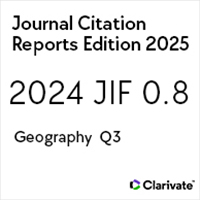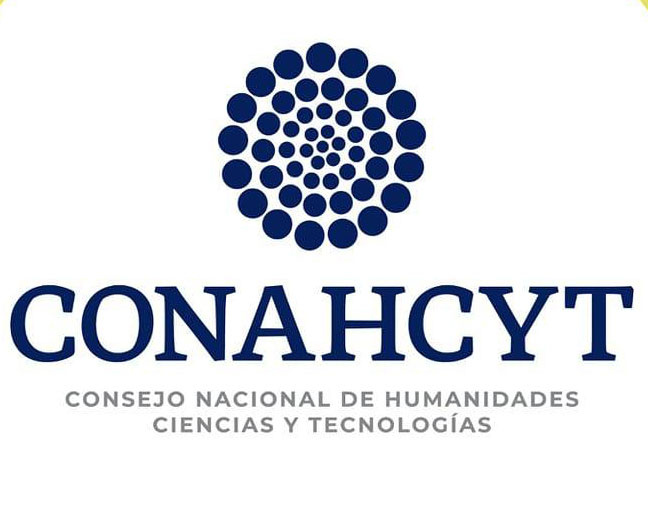The role of human capital and learning in Mexican microenterprises: The experience of the state of Baja California
El papel del capital humano y el aprendizaje en las microempresas de base social en Baja California
https://doi.org/10.21670/ref.2014.29.a07
Keywords:
Microenterprise, human capital, learning, entrepeneurship, employmentAbstract
This work aims at understanding the structure of human capital and learning in low value added microenterprises of Baja California and to determine the role of such factors in microenterprise performance, in order to establish a diagnosis on their contribution and get some public policy implications for the sector. The results confirm the importance of human capital on the performance of these businesses, since there is a relationship between human capital and performance as measured in different ways. The results also account for the heterogeneity in the distribution of microenterprise human capital among locations, sectors, types of business and sex.Resumen
Este trabajo tiene como objetivos conocer la estructura del capital humano y el aprendizaje en las microempresas de base social del estado de Baja California y determinar el papel de éste sobre el desempeño microempresarial. Ello con el fin de establecer un diagnóstico sobre su contribución y obtener algunas implicaciones de política pública para el sector en esta temática. Los resultados afirman la importancia del capital humano sobre el desempeño de este tipo de negocios, pues existe una relación entre capital humano y el desempeño medido desde diversas perspectivas. Los resultados también dan cuenta de la heterogeneidad en la distribución del capital humano microempresarial entre localidades, sectores, tipos de empresas y género.References
Aguilar, J. G., Ramírez, N. y Barrón K. (2007). Conformación de la microempresa marginada en la frontera norte de México. Estudios Fronterizos, viii(15), 51-71. DOI: https://doi.org/10.21670/ref.2007.15.a02
Altonji, J. y Dunn, T. (1991). Relationships among the family incomes and labor outcomes of relatives. En: R. G. Ehrenberg Research. Labor Economics, (pp. 269-310). Greewich: jai Press. DOI: https://doi.org/10.3386/w3724
Arrow, K. (1962). The economic implication of learning by doing. Review of Economics Studies, 29, 155-173. DOI: https://doi.org/10.2307/2295952
bid (Banco Interamericano de Desarrollo). (1997). Desarrollo de la microempresa: Estrategia sectorial.
bid (Banco Interamericano de Desarrollo). (2005). El Grupo bid y la microempresa (1990-2005): Resultados de 15 años de Trabajo.
Barron, J., Black, D. y Loewenstein, M. (1987). Employer size: The implications for search, training, capital investment, starting wages, and wage growth. Journal of Labor Economics, 5(1), 76-89. DOI: https://doi.org/10.1086/298138
Bartel, A. (1989). Formal employee training programs and their impact on labor productivity: Evidence from a human resource survey. (Documento de Trabajo núm. 3026). Cambridge, Massachusetts: National Bureau of Economics Research. DOI: https://doi.org/10.3386/w3026
Bartel, A. (1992). Productivity gains from the implementation of employee training programs. (Documento de Trabajo núm. 3893). Cambridge, Massachusetts: National Bureau of Economics Research. DOI: https://doi.org/10.3386/w3893
Bates, T. (1987). Self-employed minorities: Traits and trends. Social Sciences Quarterly, 68, 539-550.
Bates, T. (1990). Entrepreneur human, capital inputs and small business longevity. Review of Economics and Statistics, 72(4), 551-559. DOI: https://doi.org/10.2307/2109594
Becker, G. S. (1975). Human capital: A theoretical and empirical analysis with special reference to education (2da ed.). Nueva York: Nber.
Becker, G. S., (1962). Investment in human capital: A theoretical analysis. The Journal of Political Economy, 70(5), 9-49. DOI: https://doi.org/10.1086/258724
Berger, M. S. (1997). Microenterprise development strategy. Washington: bid.
Bishop, J. (1994). The impact of previous training on productivity and wages. En L. Lynch (Ed.), Training and the private sector: International comparisons, (pp. 99- 161). Chicago: University of Chicago Press.
Black, S. y Lynch, L. (1996). Human capital investment and productivity. Documentos y procedimientos de Hundredth and Eighth Annual Meeting of the American Economic Association San Francisco. The American Economic Review, 86(2), 263- 267.
Carpintero, S. (1998). Los programas de apoyo a la microempresa en América Latina. Bilbao: Ediciones Deusto.
Dunn, T. y Holtz-Eakin, D. (2000). Financial capital, human capital, and the transition to self-employment: Evidence from intergenerational links. Journal of Labor Economics, 18(2), 282-305. DOI: https://doi.org/10.1086/209959
Fane, G. (1975), Education and the managerial efficiency of farmers. Review of Economics and Statistics, 57(4), 452-461. DOI: https://doi.org/10.2307/1935905
Huffman, W. E. (1977). Allocative efficiency: The role of human capital. Quarterly Journal of Economics, 91(1), 59-79. DOI: https://doi.org/10.2307/1883138
Jovanovic, B. y Nyarco, Y. (1995). A bayesian learning model fitted to a variety of empirical learning curves. Brooking Papers of Economic Activity, 1995, 247-305. DOI: https://doi.org/10.2307/2534775
Laferrère A. y McEntee, P. (1996). Self-employment and intergenerational transfers: Liquidity constraint or family environment? (Documento de Trabajo núm. 9637), París: Centre de Recherche en Economie at Statistque.
Liedholm, C. (2002). Small firm dynamics: Evidence from Africa and Latin America. Small Business Economics, (18), 227-242. DOI: https://doi.org/10.1007/978-1-4615-0963-9_13
Hernández-Trillo, F., Pagán J. A. y Paxton, J. (2005). Start-up capital, microenterprises and technical efficiency in Mexico. Review of Development Economics, 9(3), 434–447. DOI: https://doi.org/10.1111/j.1467-9361.2005.00286.x
Mungaray, A. y Ramirez-Urquidy, M. (2007). Capital Humano y Productividad en microempresas. Investigación Económica, lxvi(260), 81-115.
Mungaray, A., Ramírez-Urquidy, M., Texis, M., Ledezma D. y Ramírez, N. (2008). Learning economics by servicing: A mexican experience of service learning in microenterprises. International Review of Economics Education, 7(2), 19-38. DOI: https://doi.org/10.1016/S1477-3880(15)30091-8
Mungaray, A., Ramírez, N. y Texis, M. (2005). Estructura de mercado y maximización de beneficios en las microempresas. Comercio Exterior, 55(4), 316-321.
Parker, S. y Robson, M. (2004). Explaining international variations in selfemployment: Evidence from a panel of oecd Countries. Southern Economic Journal, 71(2), 287-301. DOI: https://doi.org/10.1002/j.2325-8012.2004.tb00640.x
Ruiz, C. (1995). Economía de la pequeña empresa. México: Ariel.
Shultz, T. (1960). Capital formation by education. Journal of Political Economy, 68, 571- 583. DOI: https://doi.org/10.1086/258393
Shultz, T. (1961). Investment in human capital. American Economic Review, 51(1), 1-17.
Shultz, T. (1972). Investment in human capital. Education and the economics of human capital. Nueva York: Ronald Wykstra, The Free Press.
Stefanou, S. E. y Saxena, S. (1988). Education, experience and allocative efficiency: A dual approach. American Journal of Agricultural Economics, 7(2), 338-345. DOI: https://doi.org/10.2307/1242074
Teplitz, C. (1991). The learning curve deskbook, a reference guide to theory, calculations, and applications. Nueva York: Quorum Books.
Young, R., Francis, D. y Young, C. (1993). Innovation, high-technology use and flexibility in small manufacturing firms. Growth and Change, 24(1), 67-86. DOI: https://doi.org/10.1111/j.1468-2257.1993.tb00953.x































